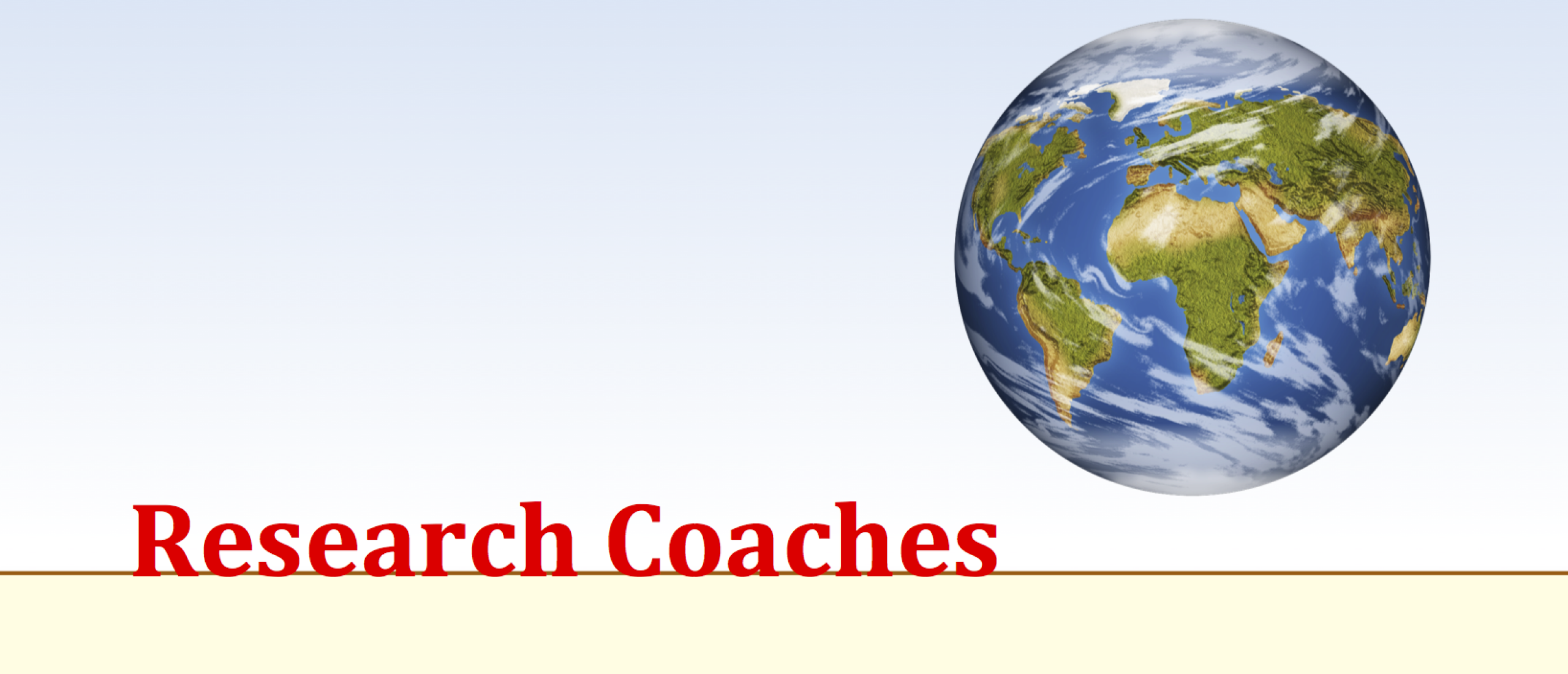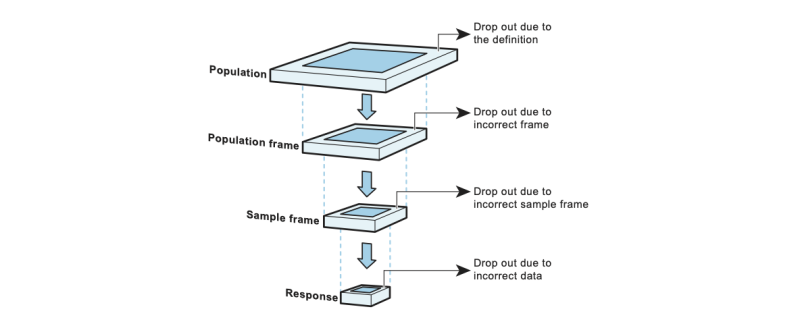
Sample / sampling
The sample is the group persons that are asked to participate in a study. The number individuals in the sample is usually less than the population and more than the response.
Sample and Response aren't equal
In English the term ‘sample’ is rather confusing. In textbooks, it is usually treated as the persons or objects that participate in the study. However, the people who did participate are called the respondents. Sometimes authors use the terms ‘sample’ and ‘response’ as synonyms. People are never obliged to participate in a study. Only when everyone who is asked to participate and everyone has actually participated, the terms “sample” and “response” are interchangeable. This will almost never be the case.
Other terms like the ‘sampled respondents’ are difficult to understand. To use the terms properly don’t mix them up. Use the term sample only for the people, organisations, animals or objects who are selected to participate in the study and use the term response only for the people, organisations, animals who did participate and delivered information to be analysed.
Sample and Population aren't equal too
Furthermore, sometimes the term ‘sample’ seems to be similar to the term ‘population’. However this isn’t true too. The population consists of all objects, animals, organizations or people that the research is about. Suppose if a study is about the opinion of the people in New York of the mayor of the city. Now it is impossible to ask all inhabitants. So a sample is taken and those people are asked to participate in the study. At least ten ways to draw a sample can be distinguished. So the sample is only a small part of the total population.
There is a remarkable aspect to be mentioned. The population is hardly ever a well-defined group of people, objects, animals or organisations. Who are all the people in New York? Are they the persons who happened to be there at a particular moment? Are tramps included? People who live there but do not own or rent a house, and what about the people who own or rent a house but who do not live there. How can a selection be made from this this blurry definition? You need a framework to define the population. In this case the framework to define the population could be something like ‘the persons who are registered as an inhabitant of New York on June 28 in 2020’.
The correct use of the term Sample
To make things very clear a figure can be used:

Now let me define the different terms in an easy way.
The population refers to all objects that the study is about.
The framework of the population refers to all objects that can be selected to participate in the study.
The sample refers to all objects that have been selected and requested to participate in the study.
The response refers to all objects that participate in the research and provide information to be analysed.
The importance of using the correct terms
Now why is this so important? Well, in science we are interested in general information. The information should be applicable to everybody in the population. So the people who deliver information by participating in a research should reflect the information of the total population. It would be weird if the gathered information about a topic from the respondents do not reflect the information of the total population. For instance, if you know how to treat John’s illness, it might work for Gerry and Andy too. And the opposite is also true. The information gathered from the inhabitants in New York about their mayor, reflect only their opinion of the mayor of New York and not their opinions of the mayor of Amsterdam, Johannesburg or Tokyo. In research this is called representativity. Several types of representativity can be distinguished, but the best way is to test it. Read all about it in our paper Representativity.



